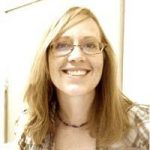
Willow Dawn Becker
Forensic psychologists investigate the psychological influences in civil, criminal, and family courts to help put diverse cases to rest in the criminal justice system. For most prospective students, knowing which subject to pursue in their studies can be a difficult decision to make. Thankfully, there are a multitude of resources at their disposal to help guide them toward their next career move. In the detailed list below, we highlight top forensic psychology professors nationwide who are active leaders and advocates in the field. These dedicated professors are not only authoritative spokespeople in the forensic psychology community online, they also continue to encourage and participate in active discussions to further enrich and enlighten the importance of combining psychology studies with law in today’s education system.

Dr. Maruna is a respected writer and forensic psychologist in the specialties of law enforcement and public opinion, criminal reintegration and penal reform. He has a strong Twitter following and publishes regularly in peer-reviewed journals and online publications.

Dr. de Ruiter focuses her online presence on sharing information regarding best practices for treating anti-social behavior, assessing mental illness for possible future violence and the link between mental illness and violence. She was a past President of the International Association of Forensic Mental Health Services and publishes several times each year in journals such as The Journal of Sexual Medicine and the Journal of Forensic Practice.

Author of 46 books, blogger at Psychology Today, TV crime commentator, and a professor of forensic psychology, Dr. Ramsland is an expert on serial killers. She has various audio and video media available online, including a TedX talk and several high-profile interviews with PBS and Discovery. Her focus is paranormal forensic psychology.

Dr. Zapf is a forensic psychologist, Fellow of the American Psychological Association, & Distinguished Member of the American Psychology-Law Society.She was also the keynote speaker for the International Association of Mental Health Services in 2013. Her work on trial competency requirements is highly regarded in the forensic psychology community.

Dr. Forth is the Director of the Psychopathy Research Lab at Carleton University, where she conducts research on the cognitive processes that underlie psychopathy. She is also on the board of directors for the Society for the Scientific Study of Psychopathy.

Dr. Goodness is a highly-sought-afterspeaker on the topics of capital murder, psychological injury and forensic assessment. She is very active on LinkedIn, with over 500 links, and she has been an educational presenter for organizations such as the North Tarrant Medical Health Professional Organization and Champion for Children.


Dr. Conroy has an extensive work background of teaching and training students in forensic psychology. From her vast experience working for the Department of Justice in the Federal Bureau of Forensic Psychology, Dr. Conroy has also helped cultivate a special doctorate program at Sam Houston State University. Her passion for uniting psychology and the law and teaching those interested in joining this profession make her a well-known professor nationwide. Her works can be found in the Journal of Forensic Psychology.

Dr. Wachtel is a well-known educator and private practitioner of forensic psychology. He has participated in a number of practical books about general forensic psychology and the requirements to determine competency for trial witnesses. He is avid in online communities and is regular in his professional updates.

Dr. Borum has worked as an instructor and consultant for local and federal anti-terrorism organizations such as the SLATT program and the U.S. Secret Service for over 15 years. He is also a past president of the American Academy of Forensic Psychology and is on the editorial board of the American Intelligence Journal.

With over 500 contacts on LinkedIn and Aces Connection, she is a powerful advocate for the safety and resiliency of children in abuse and traumatic situations. She became the acting president of Prevent Child Abuse In Minnesota in 2013.

Dr. Kovera specializes in pre-trial publicity, the criminal identification process and jury selection. She has also served as the president of the American Psychology-Law Society and won the Saleem Shah Award for Early Career Excellence in Psychology and Law from the American Academy of Forensic Psychology.

Dr. Eichel has won a number of prestigious awards with his forensic psychology work in hypnotherapy, addiction treatment and cult activity. He won the John G. Clark Award from the International Cultic Studies Association, the Psychology in the Media award from the Pennsylvania Psychological Association and the Board of Trustees Award for Distinguished Service from the American Board of Professional Psychology.

Dr. Hall’s law degree and doctorate in clinical psychology has given her many opportunities to stand as an expert witness in many trials. She has published a number of books and professional papers, including an essential paper on necessary courtroom modifications for child witnesses.

Dr. Brown is a leader in the forensic psychology community in England, having headed the forensic psychology program at the University of Surry and at the London School of Economics. She has published numerous books about police work in relation to race, culture and crime investigation

Known as “The Anger Lady,” Mrs. Christiansen uses her innate talent for speaking to share her forensic psychology experiences with anger management patients and groups. She is a personal counselor and has published a number of books that focus on using positive psychology to deal with anger and stress. Her latest co-authored book titled, "Bullying is Not a Game: A Parents' Survival Guide" explores the nature of bullying and how parents can assist their children who might be bullied at school. Check out her YouTube channel here.


Dr. Nadal is actively engaged in the online community and teaches at one of the top 10 forensic science colleges in the US. His focus is on subtle forms of discrimination on minority groups. He has received numerous awards for his work with Asian, African-American and LGTB communities.

Dr. Jordan is incredibly active in the online forensic psychology communities of Facebook, Twitter and Google+. In addition, she regularly updates her blog and professional writings to reflect her new media appearances, speaking engagements and research.
In determining which were the best psychology professors online, we took a number of things into consideration.
The forensic psychology professors in this list are well-known members of the forensic science community, either through activity on forensic or psychological boards, leadership positions in scholarly organizations or have contributed to the advancement of the professional field in the last 15 years.
All of the professors on this list are active in a number of general and specific online communities for forensic psychology. Each is an active member of one of the top 3 online communities (Facebook, Twitter, LinkedIn) and has at least an additional online community that they participate in.
Members of the were chosen based on the number of followers and fans they have attracted through their online presences. Primarily, we focused on forensic psychology professors that had over 500 connections on LinkedIn, and over 200 followers on Twitter or Facebook. This criteria was flexible, based on the impact of the professor on the community off-line. Many professors did not meet these minimum follower requirements, but were sufficiently strong in other areas to warrant their inclusion on the list.
Preference was given to professors that actively publish writing online, either through a professional blog, journal or online magazine. Professors on this list all have at least three online documents for perusal.
The final element for inclusion on this list was an active teaching schedule at an accredited university or college. Preference was given to high-quality programs at schools with the top criminology departments according to the US News and World Report 2013.

Willow Dawn Becker
Willow is a blogger, parent, former educator and regular contributor to www.forensicscolleges.com. When she's not writing about forensic science, you'll find her blogging about education online, or enjoying the beauty of Oregon.